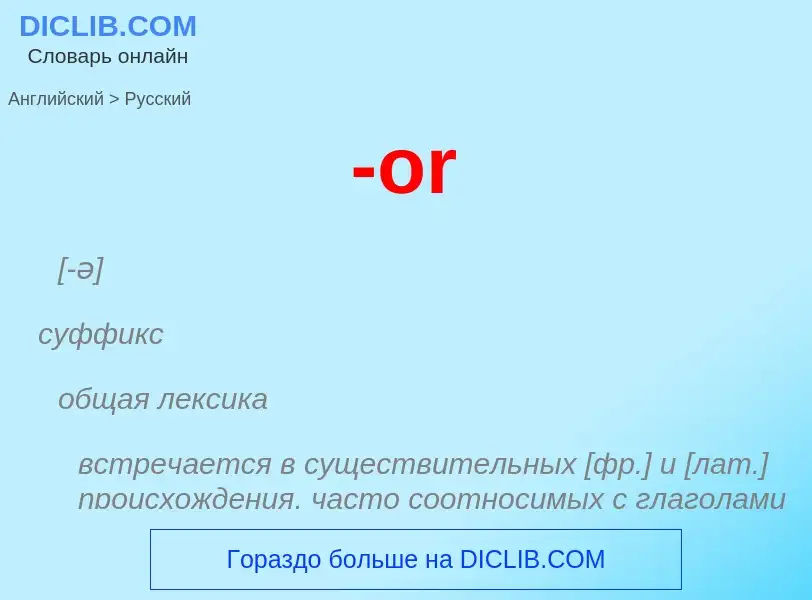Translation and analysis of words by ChatGPT artificial intelligence
On this page you can get a detailed analysis of a word or phrase, produced by the best artificial intelligence technology to date:
- how the word is used
- frequency of use
- it is used more often in oral or written speech
- word translation options
- usage examples (several phrases with translation)
- etymology
-or - translation to English
[-ə]
суффикс
общая лексика
встречается в существительных [фр.] и [лат.] происхождения, часто соотносимых с глаголами на -ss
-t
-te. Слова с суффиксом -or имеют значение
человек по роду занятий
профессии
должности
человек
делающий или сделавший что-л.
машина
устройство со специальной функцией
функциональная часть
функциональный орган
математическое понятие
[ɔ:]
математика
или... или
либо... либо
союз
общая лексика
связывает два или несколько предложений или однородных членов предложения, указывает на
выбор одной из двух возможностей или
связывает два однородных члена предложения (в отрицательных предложениях или предложениях с отрицательным значением) ни ... ни
(и) без ... и без
иначе говоря
служит для исправления, уточнения сказанного ранее точнее
точнее говоря
скорее говоря
синоним
существительное
[ɔ:ə]
геральдика
цвет золота
золотой/желтый цвет
Definition
Wikipedia
In linguistics, an agent noun (in Latin, nomen agentis) is a word that is derived from another word denoting an action, and that identifies an entity that does that action. For example, driver is an agent noun formed from the verb drive.
Usually, derived in the above definition has the strict sense attached to it in morphology, that is the derivation takes as an input a lexeme (an abstract unit of morphological analysis) and produces a new lexeme. However, the classification of morphemes into derivational morphemes (see word formation) and inflectional ones is not generally a straightforward theoretical question, and different authors can make different decisions as to the general theoretical principles of the classification as well as to the actual classification of morphemes presented in a grammar of some language (for example, of the agent noun-forming morpheme).

